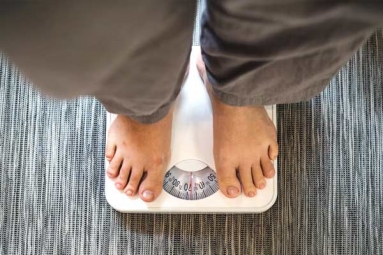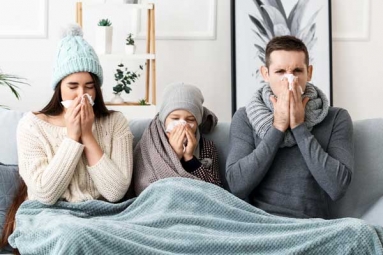
(Image source from: Canva.com)
Chronic obstructive pulmonary disease (COPD) is a progressive lung disease that blocks airflow and makes breathing difficult. Symptoms include persistent cough, shortness of breath, and frequent respiratory infections, which worsen over time if not treated properly. World COPD Day is an annual event organized by the Global Initiative on Chronic Obstructive Lung Disease (GOLD) to raise awareness of COPD, improve prevention and promote better treatment of the disease. Dr. Neetu Jain, senior consultant in respiratory, critical care and sleep medicine at PSRI Hospitals, highlights the connection between air pollution and its impact on COPD patients. “Lately there has been talk of pollution in Delhi, which has worsened in the last few days,” he said. The AQI is consistently above 400 and visibility is quite poor, with both patients with pre-existing lung disease and those with no history of lung problems, at least with symptoms related to air pollution, experiencing a 50% increase.
Most of them suffer from coughing, shortness of breath and wheezing. Some patients complain of a sore throat, sore throat, general weakness, headache and burning eyes. The number of patients receiving emergency care is also increasing, particularly among patients with acute asthma and COPD exacerbations. In addition, infections also increased, with several patients initially presenting with severe pneumonia and requiring admission to the intensive care unit. In general, the health condition is very serious and is getting worse day by day. A common trend this season is persistent cough that does not improve with traditional medications or antibiotics, and many patients require more frequent inhalations. Additionally, this year patients who previously managed their symptoms in the face of contamination are struggling. At least three patients whose symptoms had been stable for years were admitted to my care because of environmental symptoms. The theme of World COPD Day 2024, which takes place on November 20, is “Know your lung function.” This year's theme emphasizes the importance of measuring lung function using spirometry, which is an important tool for the early detection and effective treatment of COPD. Lifestyle changes can significantly improve lung health, especially in people with COPD. Read on for tips to improve your lung health. Below are some suggestions.
Quit smoking: Smoking is a leading cause of COPD and quitting can help prevent further lung damage. Over time, improves lung function and reduces inflammation caused by tobacco. Seek support through counseling, nicotine replacement therapy, or medication. Avoid secondhand smoke and create a smoke-free environment.
Follow a Pulmonary Rehabilitation Program: Pulmonary rehabilitation is a combination of exercise, training and support to improve lung function, endurance and overall health. Teaching breathing techniques to deal with shortness of breath. Work with your doctor to finalize a plan that meets your needs. Participate in supervised exercise and implement recommended lifestyle changes.
Practice breathing techniques: Techniques such as lip breathing and diaphragmatic breathing can help control shortness of breath and improve oxygen flow. To increase consistency and maximize effectiveness, practice daily under the guidance of a respiratory therapist.
Avoid environmental triggers: Pollutants, chemicals, and strong odors can worsen symptoms and lead to flare-ups. Use an air purifier, avoid outdoor activities when air pollution is high, and wear a mask in smoky or dusty environments.
Stay physically active: Regular exercise strengthens your respiratory muscles, improves blood circulation and increases oxygen consumption. Try low-impact exercise like walking, yoga, or swimming. Always consult your doctor to tailor activities to your abilities.
Eat a healthy diet: Proper nutrition supports lung health and provides energy for breathing. Avoid processed foods and focus on anti-inflammatory options. It contains fruits, vegetables, lean protein and omega-3 fatty acids. To avoid bloating, stay hydrated, eat less, and eat less.
Manage stress and anxiety: Stress and anxiety can worsen breathing problems and improve ventilation. Relaxation techniques can help you stay calm during a flare-up. Practice mindfulness, meditation and Tai Chi. Join a support group to share your experiences and learn how to cope.
Get vaccinated: Vaccinations protect against respiratory infections such as flu and pneumonia, which can worsen COPD symptoms. Keep your flu vaccine, Covid-19 vaccine and pneumococcal vaccine up to date as recommended by your doctor.
Get enough sleep: Good sleep allows your body to regenerate and reduce fatigue during the day. This is crucial for the treatment of COPD. Lack of sleep can worsen symptoms. Sleep with your head elevated to breathe easier. Avoid heavy meals, alcohol and caffeine before bed.
Symptom monitoring and management: Regular monitoring allows for early detection of worsening symptoms and allows for timely intervention. Measure your lung function with a peak flow meter, keep a symptom diary, and follow your prescribed medication regimen. Have a rescue inhaler available in case of emergency.







